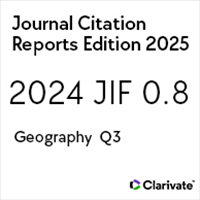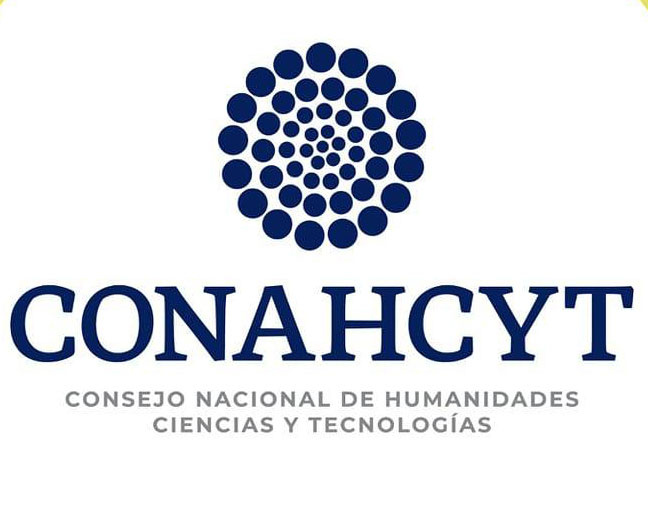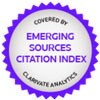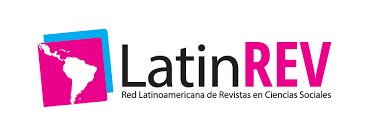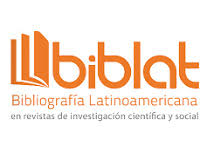Solidaridad digital y migraciones: análisis sobre el uso de tecnologías digitales entre ciudadanos venezolanos en Quito, Ecuador
Digital solidarity and migrations: analysis on the use of digital technologies among Venezuelan citizens in Quito, Ecuador
https://doi.org/10.21670/ref.2218102
Palabras clave:
solidaridad digital, migración transnacional, migración venezolana, EcuadorResumen
El objetivo principal del artículo fue analizar el uso de tecnologías de comunicación digital en las prácticas de solidaridad desarrolladas entre migrantes venezolanos en la ciudad de Quito, Ecuador. La metodología aplicada se basó en entrevistas a profundidad y análisis de contenidos en grupos de WhatsApp. El trabajo de campo fue realizado entre junio de 2020 y marzo de 2021. Para el muestreo se empleó una estrategia no probabilística (snowball sampling). La naturaleza cualitativa del estudio no permite generalizaciones estadísticas. No obstante, los resultados obtenidos caracterizan las prácticas de solidaridad digital en grupos con lazos sociales fuertes (familias) y débiles. Las conclusiones indican que, en las familias transnacionales la solidaridad digital se basa en sentidos de co-presencia que facilitan el cumplimiento de obligaciones morales, la generación de economías de cuidado y el soporte emocional; mientras que, en grupos sin conexiones previas la solidaridad se construye mediante comunidades digitales en espacios masivos e impersonales.Abstract This article aims to analyze the use of digital communication technologies in the solidarity processes of Venezuelan migrants in Quito, Ecuador. The methodology applied was based on in-depth interviews and content analysis of WhatsApp groups. The research was conducted between June 2020 and March 2021. A non-probabilistic strategy (snowball sampling) was applied for the sampling. The results illustrate the dynamics of digital solidarity both in groups with strong ties (families) and weak ties. However, due to its qualitative nature, these results cannot be generalized. The conclusions show that in transnational families, solidarity develops from a sense of co-presence that allows the fulfillment of moral obligations, the generation of an economy of care, and emotional support. On the other hand, in the case of migrants without connective ties with each other, solidarity occurs through the construction of digital communities in large and impersonal groups.
Citas
Allen, M. (2017). The sage encyclopedia of communication research methods. SAGE Publications. DOI: https://doi.org/10.4135/9781483381411
Anderson, B. (1993). Comunidades imaginadas. Reflexiones sobre el origen y la difusión del nacionalismo. Fondo de Cultura Económica.
Baldassar, L. (2008). Missing kin and longing to be together: emotions and the construction of co-presence in transnational relationships. Journal of intercultural studies, 29(3), 247-266. https://doi.org/10.1080/07256860802169196 DOI: https://doi.org/10.1080/07256860802169196
Baldassar, L. & Merla, L. (2013). Transnational families, migration and the circulation of care: understanding mobility and absence in family life. Routledge. DOI: https://doi.org/10.4324/9780203077535
Banco Mundial. (2020). Retos y oportunidades de la migración venezolana en Ecuador. Banco Mundial.
Barbosa Neves, B. & Casimiro, C. (2018). Connecting families? Information & communication technologies, generations, and the life course. Chicago Policy Press. DOI: https://doi.org/10.1332/policypress/9781447339946.001.0001
Bauder, H. & Juffs, L. (2020). ‘Solidarity’ in the migration and refugee literature: analysis of a concept. Journal of Ethnic and Migration Studies, 46(1), 46-65. https://doi.org/10.1080/1369183X.2019.1627862 DOI: https://doi.org/10.1080/1369183X.2019.1627862
Baykara-Krumme, H. & Fokkema, T. (2019). The impact of migration on intergenerational solidarity types. Journal of ethnic and migration studies, 45(10), 1707-1727. https://doi.org/10.1080/1369183X.2018.1485203 DOI: https://doi.org/10.1080/1369183X.2018.1485203
Belzunegui-Eraso, A. & Erro-Garcés, A. (2020). Teleworking in the context of the Covid-19 crisis. Sustainability, 12(9). https://doi.org/10.3390/su12093662 DOI: https://doi.org/10.3390/su12093662
Bergviken Rensfeldt, A., Hillman, T. & Selwyn, N. (2018). Teachers ‘liking’ their work? Exploring the realities of teacher Facebook groups. British Educational Research Journal, 44(2), 230-250. https://doi.org/10.1002/berj.3325 DOI: https://doi.org/10.1002/berj.3325
Boccagni, P. & Baldassar, L. (2015). Emotions on the move: mapping the emergent field of emotion and migration. Emotion, Space and Society, 16, 73-80. https://doi.org/10.1016/j.emospa.2015.06.009 DOI: https://doi.org/10.1016/j.emospa.2015.06.009
Bolgov, R., Filatova, O. & Semenova, E. (2017). Social media in México, Argentina and Venezuela: legal and political framework. En P. Parycek & N. Edelmann (Eds.), Conference for e-democracy and open government (Cedem) (pp. 253-259). IEEE. https://doi.org/10.1109/CeDEM.2017.33 DOI: https://doi.org/10.1109/CeDEM.2017.33
Bruneau, M. (2006). Les territoires de l’identité et la mémoire collective en diaspora. LEspace geographique, 35(4), 328-333. https://doi.org/10.3917/eg.354.0328 DOI: https://doi.org/10.3917/eg.354.0328
Bryceson, D. & Vuorela, U. (2002). Transnational families in the twenty-first century. Routledge.
Bull, B. & Rosales, A. (2020). The crisis in Venezuela: drivers, transitions, and pathways. European Review of Latin American and Caribbean Studies, (109), 1-20. http://doi.org/10.32992/erlacs.10587 DOI: https://doi.org/10.32992/erlacs.10587
Buxton, J. (2020). Continuity and change in Venezuela’s Bolivarian Revolution. Third World Quarterly, 41(8), 1371-1387. https://doi.org/10.1080/01436597.2019.1653179 DOI: https://doi.org/10.1080/01436597.2019.1653179
Cedeño, L. (2013). Violencia y criminalidad en el área metropolitana de Caracas: situación actual y propuestas de acción. ILDIS. https://library.fes.de/pdf-files/bueros/caracas/10324.pdf
Chayko, M. (2020). Rethinking community in communication and information studies: digital community and community ‘to go’. En B. Jansen (Ed.), Rethinking community through transdisciplinary research. Palgrave Macmillan. DOI: https://doi.org/10.1007/978-3-030-31073-8_6
Cooke, T. J. & Shuttleworth, I. (2017). Migration and the Internet. Migration Letters, 14(3), 331-342. https://doi.org/10.33182/ml.v14i3.347 DOI: https://doi.org/10.33182/ml.v14i3.347
De Reuver, M., Sørensen, C. & Basole, R. C. (2018). The digital platform: a research agenda. Journal of Information Technology, 33(2), 124-135. https://doi.org/10.1057%2Fs41265-016-0033-3 DOI: https://doi.org/10.1057/s41265-016-0033-3
Del Alcázar Ponce J. P. & Mentino-Innovation & Lifetime Value Partners. (2020, enero). Ecuador estado digital ene/20. https://drive.google.com/file/d/1Yd5h5z2xXyABzj05-j6DEtVhS2O5Ywmw/view
Durkheim, E. (1987). La división del trabajo social. Akal.
Fine, G. A. & Abramson, C. M. (2020). Ethnography in the time of Covid-19: vectors and the vulnerable. Etnografia e ricerca qualitativa, (2), 165-174. https://doi.org/10.3240/97802
García Agustín, O. & Bak Jørgensen, M. (Eds.). (2016). Solidarity without borders: Gramscian perspectives on migration and civil society alliances. Pluto Press. DOI: https://doi.org/10.2307/j.ctt19qgdww
Hirsch, T. (2017). An ethnographic study of transnational family language policy in Facebook communities across time [Tesis doctoral, University of California Santa Barbara]. https://escholarship.org/uc/item/5g7379hk
Komter, A. E. & Vollebergh, W. A. M. (2002). Solidarity in Dutch families: family ties under strain? Journal of Family Issues, 23(2), 171-188. https://doi.org/10.1177%2F0192513X02023002001 DOI: https://doi.org/10.1177/0192513X02023002001
Levitt, P. & Glick Schiller, N. (2004). Conceptualizing simultaneity: a transnational social field perspective on society. The International Migration Review, 38(3), 1002-1039. https://www.jstor.org/stable/27645424 DOI: https://doi.org/10.1111/j.1747-7379.2004.tb00227.x
Levitt, P. & Jaworsky, B. N. (2007). Transnational migration studies: past developments and future trends. Annual Review of Sociology, 33, 129-156. https://doi.org/10.1146/annurev.soc.33.040406.131816 DOI: https://doi.org/10.1146/annurev.soc.33.040406.131816
Loopmans, M., Brown, G. & De Craene, V. (2020). Everyday spatialities of intersectional solidarity and activism. Tijdschrift voor Economische en Sociale Geografie, 112(2), 101-106. https://doi.org/10.1111/tesg.12421 DOI: https://doi.org/10.1111/tesg.12421
López Loyo, E. S, González, M. J & Esparza, J. (2021). Venezuela is collapsing without COVID-19 vaccines. The Lancet, 397(10287), 1806-1806. https://doi.org/10.1016/S0140-6736(21)00924-7 DOI: https://doi.org/10.1016/S0140-6736(21)00924-7
Malinowski, B. (1973). Los argonautas del Pacífico Occidental. Ediciones Península.
Mantilla, J. (2020). Xenophobia and class conflicts among Venezuelan migrants: an ethnographic study in the City of Ibarra, Ecuador. Journal of Advanced Research in Social Sciences, 3(4), 1-11. https://doi.org/10.33422/jarss.v3i4.530 DOI: https://doi.org/10.33422/jarss.v3i4.530
Marino, S. (2021). Mediating the refugee crisis. Palgrave Macmillan. DOI: https://doi.org/10.1007/978-3-030-53563-6
Mauss, M. (2009). Ensayo sobre el don: forma y función del intercambio en las sociedades arcaicas. Katz editores. DOI: https://doi.org/10.2307/j.ctvm7bd0m
McKay, D. (2007). ‘Sending dollars shows feeling’ – emotions and economies in Filipino migration. Mobilities, 2(2), 175-194. https://doi.org/10.1080/17450100701381532 DOI: https://doi.org/10.1080/17450100701381532
McKay, L., Macintyre, S. & Ellaway, A. (2003). Migration and health: a review of the international literature. MRC Social and Public Health Sciences Unit. https://citeseerx.ist.psu.edu/viewdoc/download?doi=10.1.1.712.1123&rep=rep1&type=pdf
Millán-Franco, M., Gómez-Jacinto, L., Hombrados-Mendieta, M. I. & García-Cid, A. (2019). Las redes de apoyo social online y offline en los inmigrantes de Málaga (España). Migraciones, (47), 119-149. https://doi.org/10.14422/mig.i47y2019.005 DOI: https://doi.org/10.14422/mig.i47y2019.005
Nedelcu, M. & Soysüren, I. (2020). Precarious migrants, migration regimes and digital technologies: the empowerment-control nexus. Journal of Ethnic and Migration Studies, 48(8). 1821-1837. https://doi.org/10.1080/1369183X.2020.1796263 DOI: https://doi.org/10.1080/1369183X.2020.1796263
Nedelcu, M. & Wyss, M. (2016). ‘Doing family through ICT‐mediated ordinary co‐presence: transnational communication practices of Romanian migrants in Switzerland. Global Networks, 16(2), 202-218. https://doi.org/10.1111/glob.12110 DOI: https://doi.org/10.1111/glob.12110
Nikitina, B. A., Korsun, M., Sarbaeva, I.Y. & Zvonovsky, V. (2019). Development of the practice of sharing economy in the communicative information environment of modern urban communities. En S. Ashmarina, A. Mesquita & M. Vochozka (Eds.), Digital transformation of the economy: challenges, trends and new opportunities (Advances in intelligent systems and computing, v. 908, pp. 376-394). Springer. https://doi.org/10.1007/978-3-030-11367-4_37. DOI: https://doi.org/10.1007/978-3-030-11367-4_37
O’Hara, M. W. (1986). Social support, life events, and depression during pregnancy and the puerperium. Archives of general psychiatry, 43(6), 569-573. https://doi.org/10.1001/archpsyc.1986.01800060063008 DOI: https://doi.org/10.1001/archpsyc.1986.01800060063008
Olwig, K. F., Grünenberg, K., Møhl, P. & Simonsen, A. (2020). The biometric border world. Technology, bodies and identities on the move. Routledge. DOI: https://doi.org/10.4324/9780367808464
Organización Internacional para las Migraciones [OIM]. (2021, junio). Monitoreo de flujo de población venezolana. Ecuador. OIM. https://www.oim.org.ec/2016/iomtemplate2/sites/default/files/publicaciones/REPORTE%20DTM%20R11_final__0.pdf
Ossewaarde, M. & Reijers, W. (2017). The illusion of the digital commons: ‘False consciousness’ in online alternative economies. Organization, 24(5), 609-628. https://doi.org/10.1177%2F1350508417713217 DOI: https://doi.org/10.1177/1350508417713217
Our World in Data. (2022). Weekly confirmed COVID-19 deaths per million people. Recuperado el 3 de mayo de 2022 de https://bit.ly/3PXMwD3
Palotti, J., Adler, N., Morales-Guzman, A., Villaveces, J., Sekara, V., Garcia Herranz, M., Al-Asad, M. & Weber, I. (2020). Monitoring of the Venezuelan exodus through Facebook’s advertising platform. Plos one, 15(3), Artículo e0230455. https://doi.org/10.1371/journal.pone.0229175 DOI: https://doi.org/10.1371/journal.pone.0230455
Parker, C., Scott, S. & Geddes, A. (2019). Snowball sampling. SAGE research methods foundations.
Pelliccia, A. (2019). The Internet in a diasporic and transnational context: a case study of a Greek community in Italy. Journal of Greek Media & Culture, 5(1), 21-44. DOI: https://doi.org/10.1386/jgmc.5.1.21_1
Pernencar, C. & Saboia, I. (2020). How is the administrator’s experience in managing health Facebook groups? The impact of social media in patients with IBD. En L. V. Costa & S. Oliveira (Eds.), Communicating rare diseases and disorders in the digital age (pp. 315-341). IGI Global. DOI: https://doi.org/10.4018/978-1-7998-2088-8.ch011
Phua, J., Jin, S. V. & Kim, J. (2017). Uses and gratifications of social networking sites for bridging and bonding social capital: a comparison of Facebook, Twitter, Instagram, and Snapchat. Computers in human behavior, 72, 115-122. https://doi.org/10.1016/j.chb.2017.02.041 DOI: https://doi.org/10.1016/j.chb.2017.02.041
Pineda, L. & Moreno, A. (2009). “Para el muerto no faltan velas, ni para el michoso aguardiente”: costumbres sobre los ritos fúnebres en los Andes de Mérida, Venezuela. Iberoamerica Global, 2, 90-108. https://www.academia.edu/11520653/_PARA_EL_MUERTO_NO_FALTAN_VELAS_NI_PARA_EL_MICHOSO_AGUARDIENTE_COSTUMBRES_SOBRE_LOS_RITOS_F%C3%9ANEBRES_EN_M%C3%89RIDA_VENEZUELA
Pink, S., Horst, H., Postill, J., Hjorth, L., Lewis, T. & Tacchi, J. (2015). Digital ethnography: principles and practice. Sage.
Pruchniewska, U. (2019). “A group that’s just women for women”: feminist affordances of private Facebook groups for professionals. New Media & Society, 21(6), 1362-1379. https://doi.org/10.1177%2F1461444818822490 DOI: https://doi.org/10.1177/1461444818822490
Ramírez, J., Linares, Y. & Useche, E. (2019). (Geo)políticas migratorias, inserción laboral y xenofobia: migrantes venezolanos en ecuador. En C. Blouin (Coord.), Después de la llegada. Realidades de la migración venezolana (pp. 103-128). Themis-PUCP. https://repositorio.pucp.edu.pe/index/bitstream/handle/123456789/170254/Despue%cc%81s%20de%20la%20llegada.%20Realidades%20de%20la%20migracio%cc%81n%20venezolana.pdf?sequence=1&isAllowed=y
Rygiel, K. (2011). Bordering solidarities: migrant activism and the politics of movement and camps at Calais. Citizenship studies, 15(1), 1-19. https://doi.org/10.1080/13621025.2011.534911 DOI: https://doi.org/10.1080/13621025.2011.534911
Sanfilippo, M. R. & Strandburg, K. J. (2019). Privacy governing knowledge in public Facebook groups for political activism. Information, Communication & Society, 24(7), 960-977. https://doi.org/10.1080/1369118X.2019.1668458 DOI: https://doi.org/10.1080/1369118X.2019.1668458
Saura, G. (2020). Filantrocapitalismo digital en educación: Covid-19, UNESCO, Google, Facebook y Microsoft. Teknokultura, Revista de Cultura Digital y Movimientos Sociales, 17(2), 159-168. https://doi.org/10.5209/tekn.69547 DOI: https://doi.org/10.5209/tekn.69547
Serra, C., Martorell, C., Mantilla, J., Larrea, A. M. & Mantilla, P. (2017). El uso académico de Facebook y WhatsApp en estudiantes universitarios: un estudio comparativo entre España y Ecuador. Ecos de la academia, 3(6), 209-216. http://revistasojs.utn.edu.ec/index.php/ecosacademia/article/view/71/57
Shen, C. & Gong, H. (2019). Personal ties, group ties and latent ties: connecting network size to diversity and trust in the mobile social network WeChat. Asian Journal of Communication, 29(1), 18-34. https://doi.org/10.1080/01292986.2018.1504976 DOI: https://doi.org/10.1080/01292986.2018.1504976
Sheeran, N. & Cummings, D. (2018). An examination of the relationship between Facebook groups attached to university courses and student engagement. Higher Education, 76(6), 937-955. http://www.jstor.org/stable/45116837 DOI: https://doi.org/10.1007/s10734-018-0253-2
Stalder, F. (2013). Digital solidarity. Mute Books/PML Books. https://www.metamute.org/sites/www.metamute.org/files/u1/Digital-Solidarity-Felix-Stalder-9781906496920-web-fullbook.pdf
Stern, M. J. & Messer, C. (2009). How family members stay in touch: a quantitative investigation of core family networks. Marriage & Family Review, 45(6-8), 654-676. https://doi.org/10.1080/01494920903224236 DOI: https://doi.org/10.1080/01494920903224236
Stewart, M. & Schultze, U. (2019). Producing solidarity in social media activism: the case of my stealthy freedom. Information and Organization, 29(3). https://doi.org/10.1016/j.infoandorg.2019.04.003 DOI: https://doi.org/10.1016/j.infoandorg.2019.04.003
TenHouten, W. D. (2017). Site sampling and snowball sampling-Methodology for accessing hard-to-reach populations. Bulletin of Sociological Methodology, (134), 58-61. https://www.researchgate.net/publication/315661973_Site_Sampling_and_Snowball_Sampling-Methodology_for_Accessing_Hard-to-reach_Populations DOI: https://doi.org/10.1177/0759106317693790
Thijssen, P. (2012). From mechanical to organic solidarity, and back: with Honneth beyond Durkheim. European Journal of Social Theory, 15(4), 454-470. https://doi.org/10.1177/1368431011423589 DOI: https://doi.org/10.1177/1368431011423589
Van der Ploeg, I. & Sprenkels, I. (2011). Migration and the machine-readable body: identification and biometrics. En H. Dijstelbloem & A. Meijer (Eds.), Migration and the new technological borders of Europe (pp. 68-104). Palgrave Macmillan. DOI: https://doi.org/10.1057/9780230299382_4
Van Roekel, E. & De Theije, M. (2020). Hunger in the land of plenty: The complex humanitarian crisis in Venezuela. Anthropology Today, 36(2), 8-12. https://doi.org/10.1111/1467-8322.12561 DOI: https://doi.org/10.1111/1467-8322.12561
Vera Ortiz, J. G., Vera Barzola, A. X. & Parrales Poveda, M. L. (2020, septiembre-diciembre). Crisis económica del Ecuador: una mirada al sector microempresarial post COVID-19. Unesum-Ciencias. Revista Científica Multidisciplinaria, 4(4), 1-14. https://doi.org/10.47230/unesum-ciencias.v4.n3.2020.317 DOI: https://doi.org/10.47230/unesum-ciencias.v4.n3.2020.317
Weber, M. (2021). Economía y sociedad. Fondo de Cultura Económica.
Yoon, S. J. (2017). Cultural brokerage and transnational entrepreneurship: South Korean and Korean Chinese entrepreneurs in Beijing’s Koreatown. Korea Observer, 48(2), 387-423.







